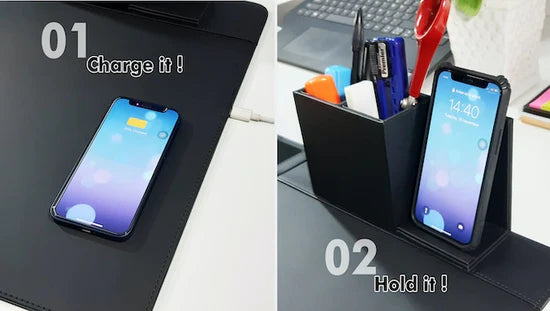Are you physically, emotionally, or mentally exhausted for no apparent reason? You may be experiencing burnout: exhaustion of physical or emotional strength or motivation, usually from prolonged stress or frustration*. Prior to the Covid-19 pandemic, 43 percent of workers in the U.S. said they were dealing with burnout. After the pandemic began, that number rose to 52 percent. This kind of stress can affect anyone, anywhere (work, school, and home), and at any stage of life*.
Signs of burnout include, but are not limited to:
Psychological
• Anxiety
• Detachment
• Feeling listless
• Negative attitude
• Difficulty concentrating
• Loss of creativity
• Absenteeism
Physical
• Exhaustion
• General aches and pains
• Headaches
• Gastrointestinal disorders
• High blood pressure
• Sleeping problems
• Compromised immunity
While you can’t recover from burnout overnight, there are techniques you can use to regain a healthier state of mind:
1. Track and identify stressors: You need to discover what people and situations increase your stress levels the most. You can use an app or other device to track your stress and mood or make notes in your planner or calendar. Sometimes just drawing a frowny face with a short note about the situation in your calendar is enough to see patterns. Once you identify what stresses you the most, you can work to avoid or reduce it. If it’s someone you can’t avoid, create a plan for how you can alleviate stress while interacting with them: perhaps focusing on breathing for a few minutes before and after communicating with them will help.

2. Journaling: Another effective way of identifying your triggers is journaling, where you can get a bit more detailed about how certain people or events affect you. You can also use it to get all your thoughts out and brainstorm how you can better cope with stress. It’s your journal, so there’s no need to worry about perfect writing or crossed-out text. Use it to write whatever’s on your mind. You could also use voice recorders or other devices if you’d rather talk than write. Achiever planner can be your best partner.

3. Create more of a work-life balance: It may not be realistic to aim for a perfect work-life balance, but most of us can make improvements. This looks different for everyone but determine what works best for your situation. Use time-blocking to help set boundaries between work and personal life, especially if you work from home. If you’re comfortable with the idea, talk to your manager; they may be able to help create a situation that is better for you.
4. Take care of your physical health: Exercise, diet, and sleep are extremely important to your overall health. You don’t have to run miles or lift heavy weights every day, just a 15-minute walk can help. If the weather is not great, try one of a plethora of free exercise videos available on YouTube – even a short Pilates class will brighten your day. Eating a healthy diet can help you feel more energized and fight off illness. Follow best practices for sleep hygiene and determine how much you need for optimal performance. If you suspect you have a sleeping disorder, talk to you doctor about remedies.

5. Seek professional help: Sometimes you need an objective person to talk to, someone who can help you discover what triggers you and why, and how to manage stress. Tracking and journaling can help you here, as you won’t have to try to just remember everything – you’ll have it recorded somewhere and can bring it to sessions. Many insurance plans include at least partial coverage for therapy, and some therapists charge on a sliding scale if you do not have the income to pay their normal fees. There are so many options now that you should be able to find a therapist who fits your financial, mental, and location needs.
6. Go to your support network: While different from professional therapy, leaning on your personal and career networks is just as important. You can talk with people who are experiencing similar problems, or have in the past, and you all can share what helps and what doesn’t. While the same coping mechanisms don’t work for everyone, trading tips and tweaking them for your own circumstances can be a tremendous help. Sometimes you just need to vent to someone who understands, and they can do the same.

7. Practice Mindfulness: While this has become a popular buzzword these days, practicing mindfulness can teach you calming techniques and help you start and end your day on a positive note. Like exercise, this doesn’t have to be difficult or take a lot of time. Just taking a few deep breaths when stressed can help reduce the fight-or-flight impulse. Again, YouTube is a wonderful thing, as you can find videos to help with meditation and relaxation. Various memberships, like Audible, include free mindfulness audio sessions. Free and paid apps are also available for your devices. Experiment with these and discover what works best for you.
8. Have fun! Adults tend to think we must always be productive, every minute we’re awake. We often forget to have fun. As usual, what is fun for you may be different than what’s fun for others. Do you enjoy a morning or evening swim, or maybe reading a chapter with your morning coffee? Perhaps you have hobbies that have fallen to the wayside. Whatever it is that brings you joy, make time for it! Take an art class, go to that wine-tasting. We are made for more than constant productivity and taking time to do what we enjoy is essential to heal from burnout and to avoid it in the future.
Stress is unavoidable, and we all must learn how we, as individuals, best cope with it. Daily acts of self-care are key to dealing with stress. Schedule time every day for self-care. It doesn’t have to take a lot of time, and you will probably try a few techniques that don’t work as well for you as they do for others. That’s OK. Determine what helps you and make time in your schedule for them. You will start seeing fewer frowny faces on your calendar and notice a change in your general well-being.
Related Blogs:
Using UDLAB's Achiever II Planner for Wellness: 9 Ways to Map Your Way to Better Physical and Mental Health
The Importance of a Good Night's Rest
The Benefits of "Unplugging" for 24 Hours
Resources
*Merriam-Webster Dictionary. Accessed 12/8/22. https://www.merriam-webster.com/dictionary/burnout?utm_campaign=sd&utm_medium=serp&utm_source=jsonld
*Kristy Threlkeld. “Employee Burnout Report: COVID-19’s Impact and 3 Strategies to Curb It.” /Lead. Indeed.com. 3/11/21. Accessed 12/8/22. https://www.indeed.com/lead/preventing-employee-burnout-report





